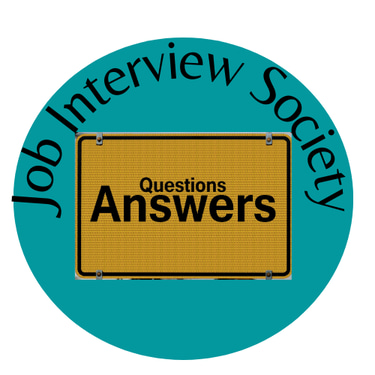Overcoming Nerves for Confident Interviews
Feeling nervous and lacking confidence during interviews can be a daunting experience. In this blog, we explore effective interview tips to help you overcoming nerves and build the confidence you need to succeed in the hiring process.
INTERVIEW PREPARATION GUIDE
10/12/20245 min read


Introduction
Going for an interview can feel like you're preparing to face a firing squad. Sweaty palms, racing heartbeat, and that sinking feeling in your stomach—if you’re nodding in agreement, you’ve been there. Nervousness and lack of confidence in an interview are not only stressful but can also sabotage your chances of landing that job. However, you’re not alone in this. Studies show that up to 93% of people get nervous before job interviews, so if you’re in the majority, there’s nothing inherently wrong with you. In this blog, let’s explore how these jitters impact your performance and some practical ways to overcome them.
Why Do Nerves and Lack of Confidence Impact Interviews?
Firstly, let’s get to the root of the problem. Nervousness in interviews happens because there’s a lot at stake. You want to impress the interviewer, articulate your skills effectively, and most importantly, land the job. When you start doubting yourself, that’s where nerves kick in. This is also often due to the fear of being judged and making a fool of yourself in front of others.
When you’re nervous, your body goes into what’s called a fight-or-flight mode. Your body reacts by releasing adrenaline, which is why you might feel on edge or jittery. Unfortunately, when this happens, your focus is compromised. Research by the American Psychological Association found that extreme nervousness can hinder your cognitive performance, making it harder to remember key details, articulate answers, and be aware of non-verbal cues. If you’re experiencing nervousness, you may:
Forget key points about your achievements.
Struggle to maintain eye contact.
Speak too quickly or too softly.
Come across as less confident than you are.
These reactions can leave a negative impression on the interviewer, even if your resume and qualifications are impressive.
How to Overcome Nervousness and Build Confidence
So, now that we know how nerves can sabotage your chances, let’s dig into how you can conquer them. Here are some key strategies to help you feel more confident and prepared:
1. Preparation is Everything
Imagine you’re about to run a marathon. Would you just show up and start running, or would you spend weeks preparing? The same logic applies to interviews. If you want to be confident, prepare as much as possible. This means researching the company, understanding the role, and practicing common interview questions. According to a survey by Glassdoor, 88% of hiring managers say that candidates who research the company perform better during interviews.
Actionable Tip: Practice your answers out loud in front of a mirror or record yourself to review your body language and tone. Alternatively, rehearse with a friend or family member acting as the interviewer.
2. Focus on Your Breathing
If you feel like nerves are taking over, try some simple breathing exercises. Deep breathing sends signals to your brain that you’re safe, reducing adrenaline and calming your body. Inhale deeply through your nose for a count of four, hold for a count of four, and exhale through your mouth for a count of four. This can help you regain your focus and stop your thoughts from spiralling out of control.
3. Visualize Success
Visualization is a powerful mental tool that top athletes and performers use to overcome nerves. Imagine yourself walking into the room, confidently answering questions, and impressing the interviewer. When you visualize a positive outcome, you create a mental map of how you want things to go, which can boost your confidence.
4. Power Poses: Fake it 'til You Make It
Yes, I know it sounds cheesy, but there’s science behind it. Harvard researcher Amy Cuddy found that adopting powerful postures for just two minutes before an interview can boost confidence and lower stress levels. Try standing tall with your hands on your hips (the “Wonder Woman pose”) or raise your arms up high like you’re celebrating. These poses help raise testosterone levels (linked to confidence) and lower cortisol levels (related to stress).
5. Acknowledge Your Nerves—But Don’t Dwell on Them
It’s okay to be nervous! Everyone feels it at some point. If you try to suppress your nerves entirely, it can often make them worse. Instead, acknowledge that you’re nervous and then refocus your mind on what you can control. It’s helpful to shift your thinking from “I hope they like me” to “I’m here to see if this is a good fit for both of us.” This mindset shift can reduce the pressure.
6. Know Your Worth
This might sound straightforward, but many of us struggle with imposter syndrome or self-doubt. It’s crucial to remind yourself of your accomplishments and the value you bring to the table. If you’ve landed the interview, the company sees potential in you. Take a moment to reflect on past achievements and feedback you’ve received, and keep those in mind going into the interview.
Actionable Tip: Make a list of your past accomplishments and read it before your interview to boost your confidence.
7. Use Affirmations
Positive affirmations can work wonders for your confidence. Repeat statements like “I am well-prepared,” “I have valuable skills to offer,” or “I am worthy of this opportunity” before going into the interview. This might feel awkward at first, but over time, it can shift your mindset and help you feel more positive and self-assured.
8. Get Feedback
Sometimes, all you need is an honest third-party perspective to identify areas where you can improve. If you’re consistently feeling nervous in interviews, practice with a mentor or coach who can give constructive feedback on your answers, delivery, and body language.
Recommended Books
If you want to dig deeper into overcoming nerves and building confidence, check out these great reads:
“Presence: Bringing Your Boldest Self to Your Biggest Challenges” by Amy Cuddy
This book explores how body language affects how we feel and how we’re perceived by others. It’s packed with actionable tips on how to feel more powerful in high-pressure situations.“The Confidence Code: The Science and Art of Self-Assurance—What Women Should Know” by Katty Kay and Claire Shipman
Although this book is particularly geared toward women, the science-backed advice on building confidence applies to everyone.“How to Win Friends and Influence People” by Dale Carnegie
This classic helps you understand the fundamentals of interacting with others confidently and making a strong impression in interviews and beyond.
Conclusion
Nerves and lack of confidence are normal before an interview, but they don’t have to be debilitating. With the right preparation, mental techniques, and self-awareness, you can walk into your next interview with your head held high. Remember, it’s not about eliminating nerves entirely; it’s about managing them and not letting them control you. So, take a deep breath, believe in yourself, and go get that job!
FAQs
Q: What if I freeze during the interview?
A: If you freeze, it’s okay to take a moment to collect your thoughts. Say something like, “That’s a great question, let me take a moment to think about it,” to buy yourself some time. Take a deep breath and regroup.
Q: How can I stop overthinking after the interview?
A: It’s common to dwell on how things went, but try to shift your focus to what’s next on your to-do list. Reframe your thoughts by asking yourself, “What did I learn from this experience?” rather than focusing on what went wrong.
Q: Should I tell the interviewer that I’m nervous?
A: While honesty is generally good, there’s no need to bring up your nerves unless it’s getting in the way. If you stumble, don’t apologize or highlight it; just move on and focus on the question at hand.
Q: How can I practice interview skills?
A: Mock interviews with a friend or career coach are invaluable. Alternatively, use apps like “Interview Coach” that offer instant feedback or record yourself answering questions for review.
By following these strategies and tips, you’ll be well on your way to overcoming nerves and acing your next interview. Good luck!
